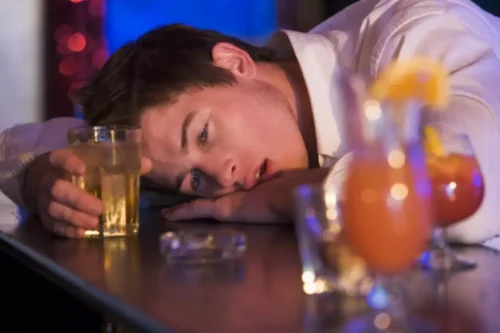
Part of the problem may lie in not being specific enough about what alcoholism is. By taking the 12 steps as directed in the first 103 pages of the Big Book of Alcoholics Anonymous. The 164 and More book is sold on this website at the Publisher List Price of $20.00 plus postage. The book may also what is alcoholism be sold by Intergroup/Central Offices or recovery book stores at List Price or slightly higher. But beware of others that sell the book marked up 400% or more.
The Myth of Addiction as a Disease
This could be the power of nature, the universe, or even something as simple as your cats or dogs at home – perhaps their love for you and the fact that they need you to be sober is your Higher Power. It doesn’t matter what your Higher Power is; what matters is that you believe in something that can help guide and support you on your journey to recovery. For example, AA rooms offer fellowship and support and provide a structure that can help keep you sober. These are all positive things that can help you on your journey to recovery, regardless of your beliefs. Here are some things you can do to work through your spiritual malady even if you don’t believe in God or have an understanding of your higher power.

What does Alcoholics Anonymous mean by “Physical Allergy”?
The 12 Steps of AA encourage improving one’s conscious contact with a higher power, specifically focusing on prayer and meditation in Step 11. By dedicating time to these spiritual practices, we can nurture our spiritual life and find the strength to overcome addiction. A connection with a higher power is intrinsically tied to overcoming spiritual malady. Addiction is not only a disease of the brain but also of the spirit, highlighting the critical role of spiritual healing in recovery. In the 12-Step Program, integrating a higher power into our lives is a cornerstone of combating addiction.
How 12 Step Programs Can Help
- The Big Book describes this step as a way to seek “knowledge of His will for us and the power to carry that out.” Prayer involves asking for guidance, while meditation helps us quiet the mind to receive clarity.
- But beware of others that sell the book marked up 400% or more.
- The idea of this group was to work through the twelve steps.
- It’s about facing those we’ve harmed with honesty, humility, and accountability.
- AA also provides a supportive community of individuals who understand the challenges of addiction and can provide encouragement and support.
- And thirdly, discovering “belonging” and continued spiritual growth through service to the people within that group.
Let’s find out what the spiritual malady is in AA terms, and explore some ways to reframe the concept into one that’s a bit more science-based, practical, and optimistic. The AA Big Book describes a spiritual malady as the inner turmoil, selfishness, and fear that drive addiction. It appears in the bedevilments—feeling restless, anxious, and disconnected from others.

Spiritual Malady and the Relapsing Nature of Alcoholism
If you don’t believe in Jesus, or you’re not sure what you think about Him, that’s okay. No matter where you are in your spiritual journey, you’re welcome here, and you’ll find help and acceptance. Step 1 in the AA programme is “ We admitted we were powerless over alcohol – that our lives had become unmanageable”.
Addiction Categories
- These illustrate how the 12 step programme can help with an emotion dysregulation disorder.
- Daily gratitude and journaling help recognize and appreciate the positive aspects of life, fostering spiritual growth.
- When things get tough, take a moment to pray, meditate, or just sit quietly and think about your Higher Power and what it means to you.
Without a connection to a higher power, it can get quite ugly in sobriety. People in the rooms refer to this as a ‘god-sized hole’. It’s a void that we used to fill with drugs and alcohol. We will try to fill this god-sized hole with anything we can.
A Judgy “Higher Power”
After coming into the fellowship in 1984, I relapsed regularly for over a decade. By the time I attended the BB study, I somehow managed to not drink for twelve years. Whenever things got tough, I would drink again or get into a co-dependent relationship. Every time I relapsed, I would have to look for a new sponsor.
- Driven by a hundred forms of fear, self-delusion, self-seeking, and self-pity, we step on the toes of our fellows and they retaliate.
- But if we want to stay on the “Road of Happy Destiny” we need to be familiar with the whole package that leads to freedom, recovery, peace of mind, joy, usefulness and “a way of life that is incredibly more wonderful as time passes.”
- Researchers on the topic of addiction have found that, once they have begun drinking, those who are alcoholics begin to experience changes in brain matter composition and function.
- Step 8 is where we begin preparing for direct action in our relationships.
- Walking meditation, using labyrinths, and mandalas are also effective methods for finding peace and clarity.
- Every time the alcoholic drinks anything containing alcohol, more molecules of THIQ are produced and deposited to that very critical part of the brain.
Addiction Treatment Program

I remember promising myself I’d stop countless times, yet nothing changed until I admitted complete defeat. Honesty opens the door to healing, and sharing this truth with someone who understands makes all the difference. The spiritual malady is the sickness of our soul, developed over time, and can only be truly overcome by first looking at ourselves. So let’s take a look at the questions we can ask ourselves to help us build our spiritual inventory list. We’re going to look specifically at four areas of our lives.
Finding the Right Support System
Many spiritual malady aa men and women in AA describe certain feelings they had before picking up a drink or drug. Many of us felt that there was something wrong with us or something missing—in short, we felt different from other people. We couldn’t understand why the people surrounding us could feel happiness or contentment, so we turned to drugs and alcohol as a means of self-medicating our perceived shortcomings. From our time spent feeding our addictions, we feel that the opposite begins to happen. Rather than providing a feeling of relief, we find ourselves in a perpetual “dark night of the soul,” cut off from any sense of spiritual comfort.

